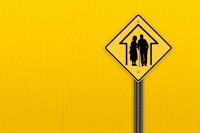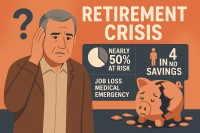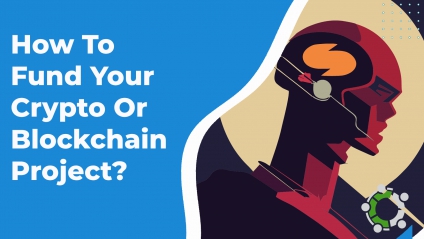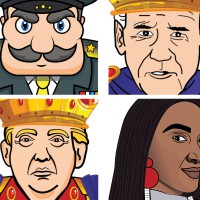MONETIZE & BOOST CONTENT
Monetizing your FREE webinars and related content has never been easier. Use our platform to list your events and onboard new affiliates as well as guests. Earn $1.00 for each new guest you onboard, share up to 70% of tipping and membership revenues and promote your webinar(s) to reach new global markets.
Drive earnings and expand reach to include listing of your webinar on upto 6,000 + event calendars, blogs and social media groups.
NINE MONETIZATION BENEFITS
- Earn $1 for each new collaborator/registration
- Share up to 70% of tipping revenues
- Share up to 12.5% of e-commerce revenues
- Share up to 50% of membership upgrades
- Share up to 30% of hosting upgrades
- Share up to 12.5% of your team's earnings
- Transform supporters into your affiliates
- Build viral fan networks
- Identify affiliates to promote your webinars
Save & Earn $10K Per Month
Conservative's Delilah Convinces NDP's Samson to Cut His Political Hair, Weakening Both Hands
Anthony HuieQuebec Now Handed the Political Hammer to Finish the Final Leg Heading into 2025, Highlighting Conservative Leader’s Political Inexperience
In the complex political landscape leading up to the 2025 Canadian federal election, few would have predicted the unexpected events between Conservative leader Pierre Poilievre and NDP leader Jagmeet Singh. Yes understandingly so, the childish name calling is not to anyone's surprise coming from the conservative leader but its ability to have so easily penetrated Jagmeet Singh's political skin, that may have been unexpected. With that reaction from Singh, the supply-and-confidence agreement between the NDP and the Liberals has now been dissolved, Singh’s decision is a pivotal moment, one that could alter the course of the election.
By walking away from the deal that has supported Prime Minister Justin Trudeau’s Liberal minority government since 2022, Singh has placed himself in a precarious position. His political strength, built upon the foundation of the NDP-Liberal pact, now appears diminished, leaving him vulnerable to attacks from both sides.
Comparisons have emerged, likening Poilievre to Delilah and Singh to Samson—by convincing Singh to "cut his political hair" and dissolve the agreement, Poilievre may have weakened Singh's power base without offering any clear alternative.
Pierre Poilievre: All Rhetoric, No Substance?
Pierre Poilievre has effectively positioned himself as the frontrunner in the soon to be called federal election, due sping of 2025 but many critics argue that he lacks substantive policy. Some have gone as far as to say that Poilievre is "turning wine into water"—taking the significant issues facing Canadians and reducing them to shallow, rhetorical talking points without offering meaningful solutions. While he continues to hold the support of his conservative base with his bold promises and repetitive single mantra speeches, the actual content or more importantly, substance, behind those words remain questionable. Poilievre’s platform, focused on cutting taxes and reducing government interference, often overlooks the complexity of economic realities. His failure to reconcile global economics and their effect upon Canadian policies continue to be of concern.
Poilievre’s rhetoric, however, seems increasingly out of touch with the direction Canada’s economy is heading.
As interest rates show signs of stabilizing and the Canadian government now in a position to spend upwards of $40 billion annually through 2028 without compromising fiscal strength, his doomsday predictions about the economy may soon lose their impact.
This disconnect could prove problematic for Poilievre as he tries to maintain his lead in the polls. The U.S. federal election, slated for November 2024, could also affect his momentum. With the Democrats potentially regaining ground in the U.S. political landscape, Poilievre’s alignment with the more extreme conservative U.S. ideals might not resonate as strongly with Canadian voters. As Canada’s economy continues to show signs of recovery, his warnings may start to sound increasingly hollow.
Jagmeet Singh: Floating in the Political Winds?
Jagmeet Singh’s decision to pull out of the NDP-Liberal agreement has left his party in uncharted territory. He framed the move as an effort to hold the Liberals accountable, stating that Prime Minister Justin Trudeau had become too "beholden to corporate interests" and could no longer deliver meaningful change for Canadians. Ironically that is exactly what Singh was most successful at over the past years of the agreement.
Singh’s choice to distance himself from the Liberals may have been made to politically differentiate the NDP ahead of the 2025 election but it also comes with significant risks.
By ending the agreement, Singh has lost the stability that the pact provided. He now faces the challenge of convincing Canadians that the NDP can offer a viable alternative to both the Liberals and the Conservatives outside of Quebec and an even more difficult task inside Quebec. Without the guaranteed influence the deal afforded, the NDP’s role in shaping policy has become less certain. Singh himself acknowledged the risks, admitting that the decision makes an early election more likely.
There is a difference between negotiating and bluffing. The agreement offered Singh an opportunity to negotiate. Now, having to bargin from a position of weakness, well that is called, bluffing.
Critics of Singh’s move argue that Pierre Poilievre manipulated Singh into this position, weakening his standing and leaving him politically adrift. Without the Liberal-NDP agreement, Singh has lost one of the NDP's most significant sources of leverage. In the absence of that power, the NDP may find it difficult to present itself as a strong third option, leaving Singh vulnerable to further erosion in voter support.
Justin Trudeau: Perhaps Shaky But Remains The Steady Hand
Meanwhile, Prime Minister Justin Trudeau remains a steady hand at the wheel. Trudeau has faced criticism throughout his tenure, particularly regarding his handling of corporate influence and labor disputes. However, his government’s focus on balancing economic growth with social justice policies has provided stability in uncertain times. Despite the recent dissolution of the agreement with the NDP, Trudeau has maintained his commitment to delivering on key policies that benefit working Canadians. Important to note, ie the national dental benefit, policies coming as a direct reward from the agreement that was in place.
For the many voters still standing at the crossroad of the undecided, Trudeau offers significantly more clarity on policies. Under his leadership, Canada has weathered multiple challenges, including the global pandemic and the economic uncertainties that followed. Depite the critics, the Trudeau government’s ability to maintain fiscal strength while planning significant investments in social programs is a testament to strong leadership.
The Quebec Factor: A Wildcard in the Race
Heading into the 2025 federal election, Quebec will become a critical battleground. The province, known for its unique political landscape, could hold the key in the running of the final leg of the upcoming election. The dissolution of the Liberal-NDP agreement leaves Quebec voters with a new set of choices, as both the Liberals and the NDP court their support.
While Poilievre’s brand of conservatism may appeal to some Quebecers, his lack of experience and limited policy depth may hinder his success in the province. Poilievre's 20 years of political office falls well short of the experienced Trudeau’s and his long-standing relationship with Quebec. Now having been handed a hammer with which to run that final leg of the race, Quebec could give the right leader an advantage, particularly if they can emphasizes stability and continued economic growth.
Polls: A Cautionary Tale for Poilievre
Recent polling data suggests that Canadians may not be ready for an election, with a Nanos Research poll indicating that 54% of Canadians were content with the Liberals and NDP working together to avoid an election. Poilievre’s eagerness to push for an early election may backfire if Canadians perceive his actions as reckless or self-serving. Moreover, the same polls suggest that Canadians are skeptical of Poilievre’s ability to lead, given his lack of substantive policy proposals.
Trudeau’s camp has capitalized on the end of the NDP-Liberal deal, using it as an opportunity to bolster fundraising efforts. The Liberal Party reported a significant surge in donations within just 12 hours of Singh’s announcement, indicating strong grassroots support for Trudeau’s continued leadership. The party’s fundraising email, sent from Trudeau himself, framed Singh’s decision as a capitulation to Poilievre’s influence, calling it "disappointing" and accusing Singh of abandoning progressive policies.
A Path Forward
As Canada approaches the 2025 federal election, there remain many uncertainties. Pierre Poilievre’s meteoric rise, coupled with Jagmeet Singh’s decision to end the NDP-Liberal agreement, has created a volatile environment. However, in the midst of this uncertainty, what is known is always stronger than that which is not. Poilievre's continued dependancy on one line phrases will not give energy enough to convinced Canadians that Justin Trudeau's path forward—one that prioritizes stability, economic growth, and progressive policies will be easily defeated. For voters who are wary of the turbulence created by Poilievre and Singh, Trudeau represents a steady, experienced leader capable of guiding Canada through the challenges ahead.
Poilievre will have to change his policy of shoutinig from the mountaintop, offering voters nothing but empty promises and the fear of Canada being broken, if he is to convince those still undecided that he has a plan worth following. Trudeau’s record with all its crtics still speaks for itself. His government has delivered on key social and economic policies, and with Quebec now holding the political hammer, Trudeau is well-positioned to negotiate instead of those having to bluff.
Until Poilievre, by way of his promotional media and or his public speaking engagements, begin to show a Canada that reflects the multicutural mosaic that once made us the envy of the world, Justin Trudeau remains the clear choice for Canadians seeking stability, progress, and leadership.
Supporting Articles and Sources:
- CTV News: "NDP's Singh pulls out of supply-and-confidence deal, says election more likely" (2024)
- Nanos Research: "Majority of Canadians prefer avoiding an election right now" (2024)
- The Liberal Party of Canada: Fundraising statements following the NDP-Liberal deal collapse (2024)
The Retirement Crisis You Canβt Ignore: AI Offers A Soluti..
Build Collaborate
331 Views 1 week ago
Revolutionizing Election Technology and Voter Engagement wit..
Build Collaborate
389 Views 2 weeks ago
AI Can Compose Music & Create Amazing Art: Exploring the Cre..
Build Collaborate
373.2K Views 1 year ago
Innovating The Way You Network & Monetize Online With Social..
Build Collaborate
127.1K Views 1 year ago
Why AI is the Greatest Invention of the Last Century: Transf..
Build Collaborate
99.2K Views 1 year ago
How Can You Fund Your Crypto Or Blockchain Project: Explorin..
Build Collaborate
97.5K Views 1 year ago
General Ramos' Rule The World NFT Collection Is Now Powered ..
Build Collaborate
96.6K Views 2 years ago
MONETIZE & BOOST CONTENT
Monetizing your FREE webinars and related content has never been easier. Use our platform to list your events and onboard new affiliates as well as guests. Earn $1.00 for each new guest you onboard, share up to 70% of tipping and membership revenues and promote your webinar(s) to reach new global markets.
Drive earnings and expand reach to include listing of your webinar on upto 6,000 + event calendars, blogs and social media groups.
NINE MONETIZATION BENEFITS
- Earn $1 for each new collaborator/registration
- Share up to 70% of tipping revenues
- Share up to 12.5% of e-commerce revenues
- Share up to 50% of membership upgrades
- Share up to 30% of hosting upgrades
- Share up to 12.5% of your team's earnings
- Transform supporters into your affiliates
- Build viral fan networks
- Identify affiliates to promote your webinars
Activate Tipping, Donations & Social Rewards
Register Now
Support This Creator
Thank you [ Name of Creator ]
Email:
COPY TEXT BELOW, OPEN EMAIL CLIENT, CREATE NEW MESSAGE, PASTE TEXT FROM CLIPBOARD & SEND MESSAGE
I thought you might be interested in this content/opportunity:
You can review at
Whatsapp:
COPY TEXT BELOW, OPEN WHATSAPP, CREATE NEW MESSAGE, PASTE TEXT FROM CLIPBOARD & SEND MESSAGE
I thought you might be interested in this content/opportunity:
You can review at
Instagram:
COPY TEXT BELOW, OPEN INSTAGRAM& CREATE NEW DIRECT MESSAGE, PASTE TEXT FROM CLIPBOARD & SEND MESSAGE
I thought you might be interested in this content/opportunity:
You can review at
Skype:
COPY TEXT BELOW, OPEN SKYPE& CREATE NEW DIRECT MESSAGE, PASTE TEXT FROM CLIPBOARD & SEND MESSAGE
I thought you might be interested in this content/opportunity:
You can review at
Snapchat:
COPY TEXT BELOW, OPEN SNAPCHAT, CREATE NEW CHAT, PASTE TEXT FROM CLIPBOARD & SEND MESSAGE
I thought you might be interested in this content/opportunity:
You can review at















